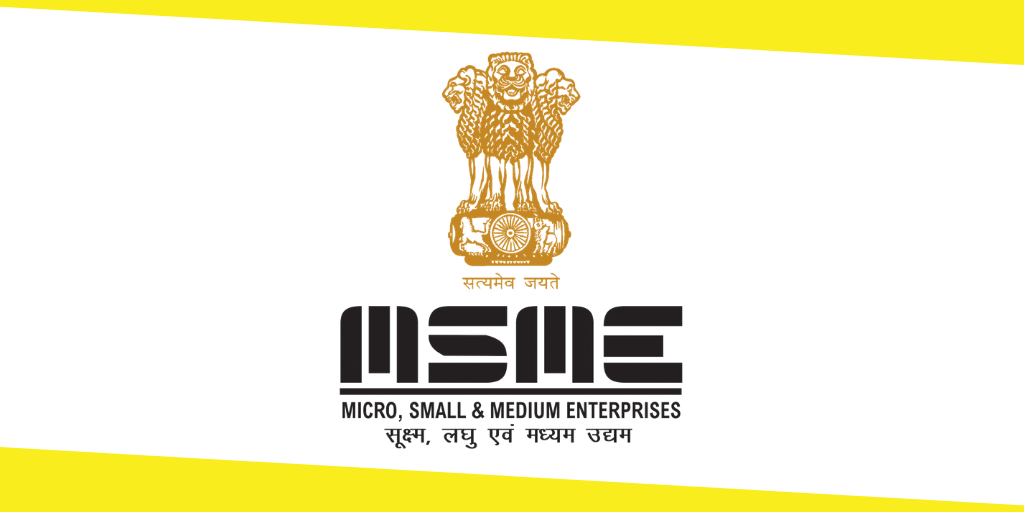MSMEs:The Pillars of India’s Economic Growth

Micro, Small & Medium Enterprises (MSME) are often recognised as pillars of economic growth in developing countries across the world. Rightly termed The Engine of Economic Growth, they play a prominent role in the creation of employment opportunities for the development of the country. Surprisingly, over 90% of total enterprises constitute MSMEs. Being operationally flexible, they have the capacity to create indegeneous technology with extremely low investment costs. With adversites being faced in terms of infrastructure, market linkage and competition from domestic as well as international markets, the sector has stood tall and has experienced tremendous growth. In 2006, the MSMED ACT added the service sector, thus providing the sector with added strength. Under the act MSME registration online was also simplified by the government. MSMEs have been instrumental in the growth of the country’s GDP. They are one of the biggest employers, employing over 120 million people, falling short of only the agricultural sector.
Growth Factors
Various campaigns have been created to level out the playing field for MSMEs. Some of the campaigns that push these MSMEs towards magnified productivity include Skill India, Digital India, Skill India and Make in India. The familiarity of digital payments and increasing internet penetration made apparent by B2C e-commerce players, have helped the MSME sector grow. MSMEs have also had access to timely collateral free finance by tying up with FinTech companies. With the growth of the younger generation, employment patterns also begin to change. Where agriculture once reigned supreme, entrepreneurial start-ups are gaining momentum creating a myriad of job opportunities for the people.
Challenges Faced
MSMEs today form such a significant part of the economy. But it’s not without hardships. Most MSMEs have limited access to credit as they are dependant on informal sources of funding. The lack of a highly skilled workforce and ineffective marketing strategies result in considerably low outreach to new markets. MSMEs also show low adaptability of new technology and innovation.This hampers growth. The use of traditional machines and inadequate access to quality raw materials results in subpar quality of export products. Bureaucracy, cumbersome government procedures and a poor litigation system in the country hamper the ease of doing business for MSMEs.
The Importance of MSMEs
Large Scale Employment:
India is a country that produces about 1.2 Million graduates a year. This requires the economy to provide adequate opportunities to these fresh graduates.MSMEs require very minimal capital to start their businesses, and as a result of this huge employment opportunities are created by them.
Economic Stability:
MSMEs contribute around 6.11% of the manufacturing GDP and about 24.63% of the GDP from service activities. They contribute about 45% to the manufacturing sector and approximately 40% to the export industry. A lot of MNCs now source auxiliary and semi-finished products from smaller enterprises.
Low overhead costs & Cheap Labour:
A key challenge many large organizations face is retention of the workforce as employees demand high wages and a balanced worklife. MSMEs require much less skilled labourers and hence the owners incur much lower indirect expenses. Singe these enterprises are smaller in nature, they also spend less on rent, administrative and marketing costs.
Inclusive growth:
A big role that MSMEs play is promoting inclusive growth. They do this by providing employment opportunities by reaching out to a wider spread of people, especially people belonging to the weaker sections of society and people living in rural areas. Khadi industries employ large numbers of women in rural areas.
Financial Opportunities:
A lot of MSMEs operate in smaller towns and cities and employ a lot of people in those regions. This provides the people opportunities to use the various banking services and related financial assistance in these areas.
Innovation:
The MSME sector in India provides multiple opportunities for entrepreneurs, with dreams and visions, to build and create the products that they want. This, in turn, boosts competition among businesses and fuels the growth of the economy!
The MSME Development Bill was amended in 2018. The changes state that all MSMEs, manufacturing or service, would be classified on the basis of their annual turnover. This would eliminate the need for the MSMEs to be frequently inspected.It also allows for transparent and non discriminatory objectives. The simplification of the MSME registration online by making it paperless also goes a long way in keeping track of the development of MSMEs. In June 2019, the MSME ministry lifted the ban on private and corporate players in the MSME sector. This creates more job opportunities and will reduce the dependency on imports. The need for MSMEs to adapt and thrive in today’s digitally transformed world is imperative to boost economic growth. The sector needs to embrace technology, upgrade infrastructure and adopt best practices to continue dominating the economy.
You may like this
Recommended For You
How Tank Trailers Are Indispensable To The Oil And Gas Industry
Most Inside
Most Inside offers high-quality recommendations and valuable updates to enhance all aspects of your life, providing premium guidance and enriching experiences.




